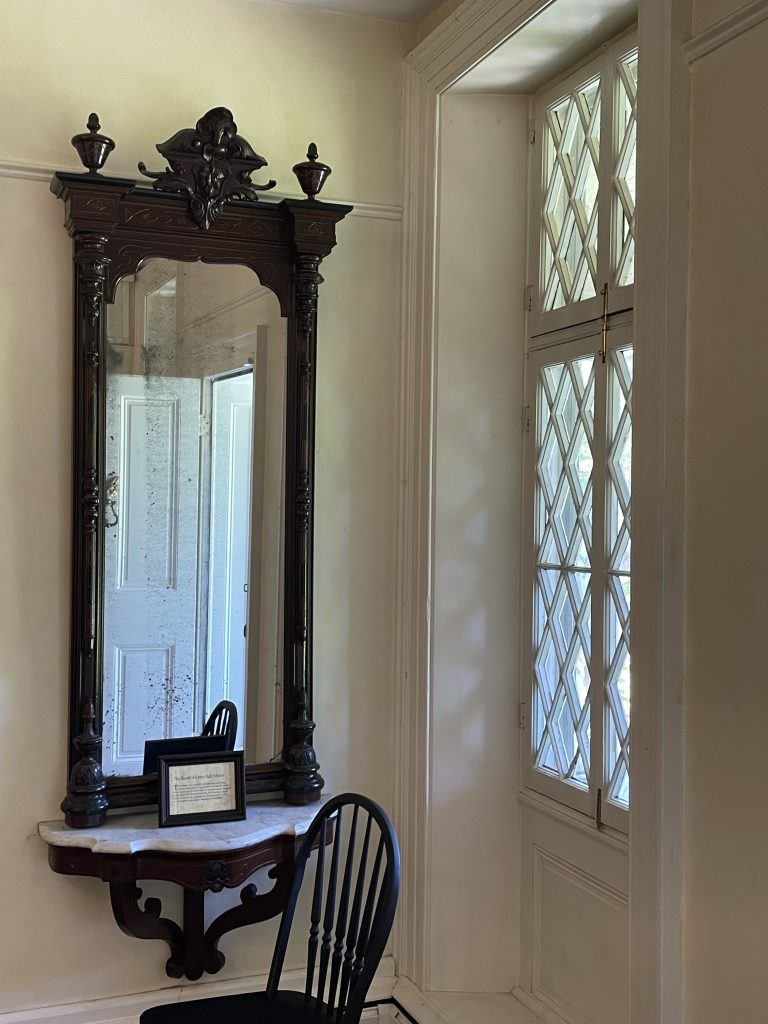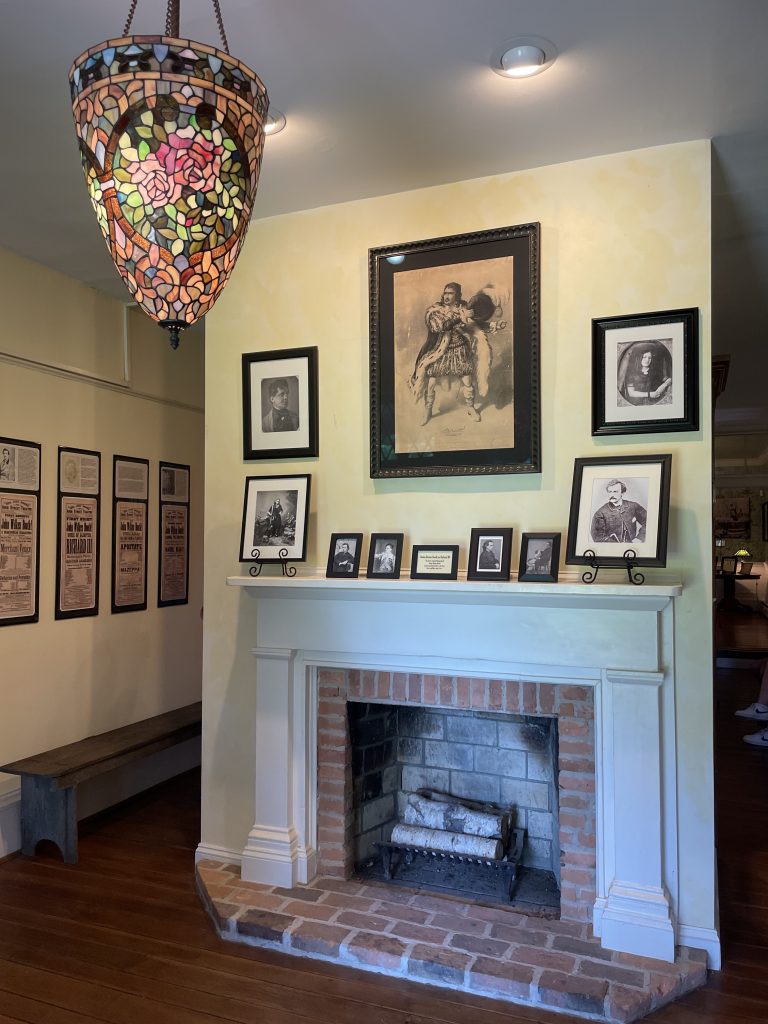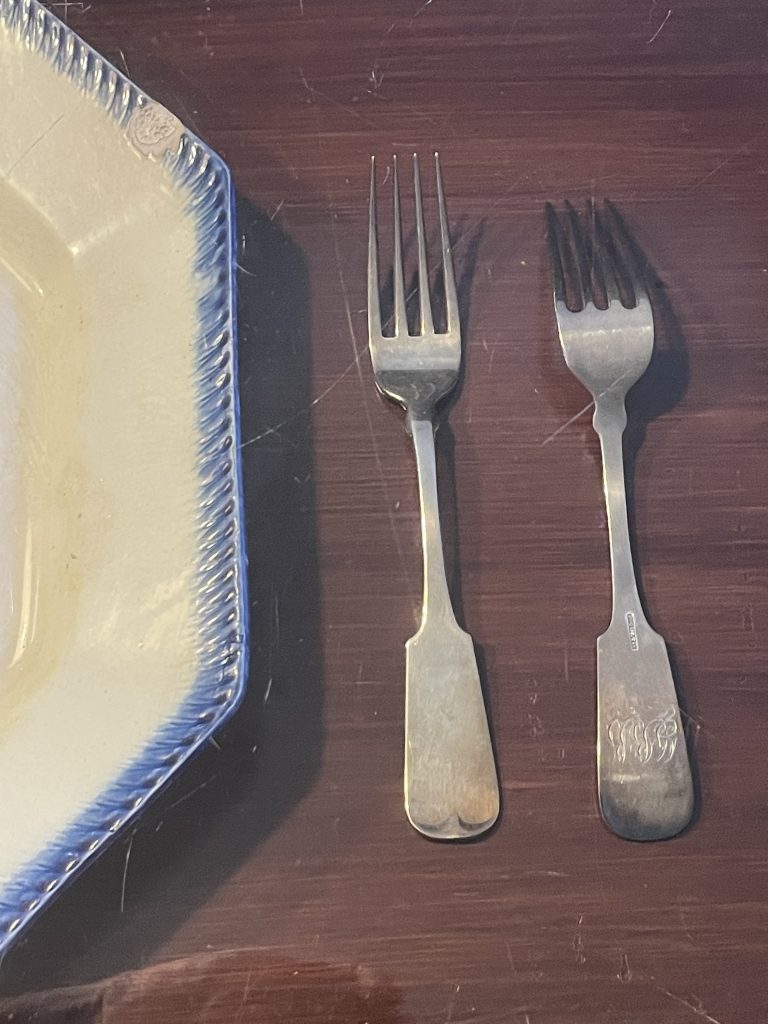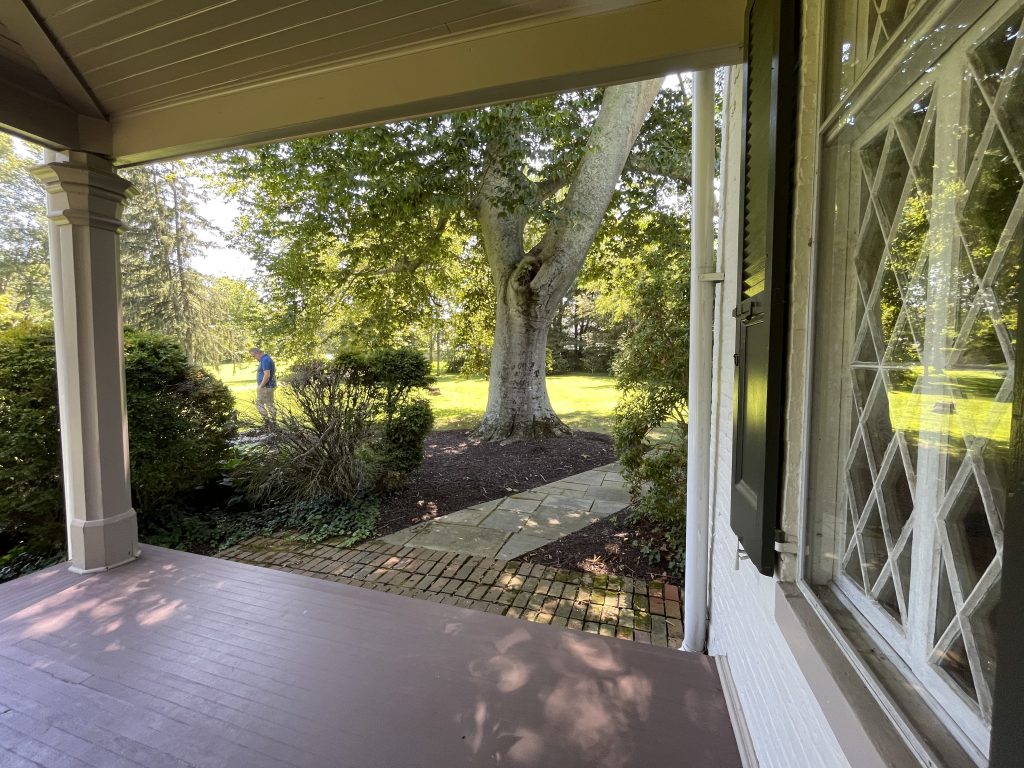Doug and I briefly visited family in New Jersey, and timed getting back on the road to coincide with the limited schedule at Tudor Hall in Bel Air, Md. Tudor Hall is the Gothic Revival home of the famous acting family, the Booths. The family is of course also known for its infamous member John Wilkes Booth, the assassin of President Abraham Lincoln.
Originally a 150-acre working farm, the home today is situated on several lovely acres with magnificent mature trees and a small but colorful garden full of butterflies.
There’s not much original to the Booth family inside and the experience is limited to a few rooms on the first floor. The home is dedicated to the theatrical Booth family, whose fame and stature has sadly been eclipsed by the infamy of one of their own.


Junius Brutus Booth (1796-1852) was one of the premier actors of his day, with a wildly successful career based in England. However, when his pregnant mistress Mary, a former flower girl who plied her trade near the theaters that Junius headlined, needed to be squirreled away, he relocated with her to America, telling his wife Adelaide that he was off to try his fortunes there.
Booth reached a level of fame in the U.S. that equaled his popularity back in England. He and Mary had ten children, but Junius longed for a bucolic home away from the hustle and bustle of his theatrical lifestyle, a place where his brood could frolic in the country fields (or more likely keep them out of the prying eyes of the public). He bought a plot of unimproved land in Harford County, Md., and had a log house rolled on logs greased with pig lard from a nearby farm into just the perfect location on his property.
It was here that Junius planned to live out his years under his own vine and fig tree, except….
About twenty long years after Junius and Mary crossed the Atlantic, Junius stopped sending money to the first (that is, the original and in fact still the only legal) Mrs. Booth. She sent their first son, Richard Junius, to investigate, and Junius welcomed his son, convincing him that he lived alone, just a dedicated thespian working hard to earn a living in the rough and tumble world of show business.
This deception lasted another three years, but eventually Richard discovered the truth about his father’s perfidy and relayed the facts of the matter to his mother. Embodying the phrase “Hell hath no fury like a woman scorned”, Mrs. B. promptly set sail from England. Upon arriving in the States, she hounded Junius at every turn and whipped up a public scandal for the ages. Eventually she took Junius for everything he had and a divorce was finalized. (At this point I whispered to Doug I was taking notes, just in case.)
Through some strategic advance planning, however, Junius’s bucolic farm in Harford County, Md., was safe from the first Mrs. Booth’s wrathful grasp.
Junius made an honest woman of Mary shortly after finalizing his divorce. As retirement loomed, he then commissioned a new home to be built to replace the rustic farmhouse. The house was built in the English Tudor style, and thus was christened Tudor Hall.
Sadly, Junius never actually lived at Tudor Hall, as he died before it was completed. Mary continued living on the property with various of their children, including Junius Jr., a mediocre actor who became a theatrical manager and shepherded his father’s later career; Edwin, who became possibly even better known and more popular an actor than Junius himself; and John Wilkes, who was a successful working actor though somewhat under his brother Edwin’s shadow. These three performed together just once, in Shakespeare’s Julius Caesar.
John Wilkes lived in the finished Tudor Hall for four years about a decade before he assassinated President Lincoln in 1865. Edwin and Junius and most of the family were not Southern sympathizers, but John Wilkes somehow became radicalized nonetheless.

On our drive we listened to Manhunt: The 12-Day Chase for Lincoln’s Killer by James L. Swanson. Last year, we visited the Ford’s Theatre in D.C. where Lincoln was assassinated, and the day after our Tudor Hall visit, we planned to visit President Lincoln’s Cottage. We love it when different pieces come together!
Shout out to the lovely volunteers we met at the site, Mike and Sue, along with our sassy tour guide Jane. Tudor Hall has a robust schedule of guest speakers throughout their season, so it is not out of the realm of possibility that we’ll be back!









One thought on “Tudor Hall and the Booth Family”